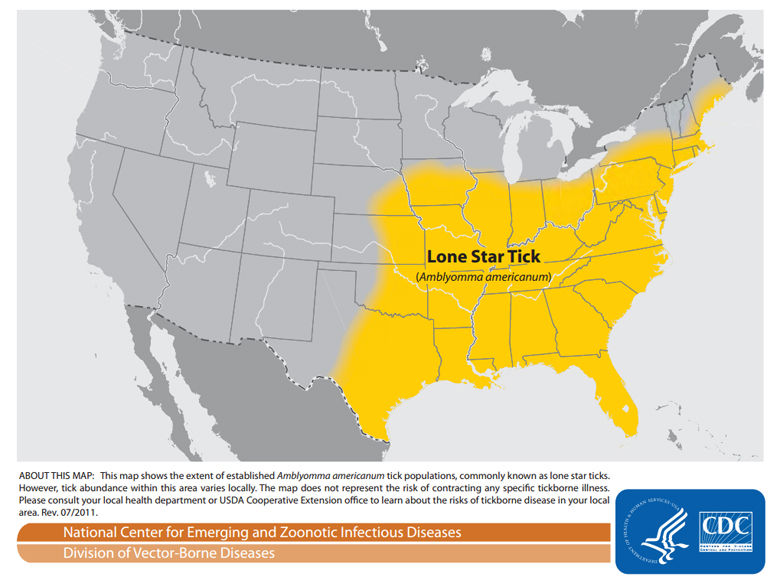WASHINGTON — This summer, a routine tick bite could leave you with more than an area of irritation — it could result in a lifelong allergy to meat.
Dr. Jacqueline Eghrari-Sabet, a Gaithersburg, Maryland, allergist with the Allergy and Asthma Network, says doctors throughout the eastern part of the U.S. are seeing more cases of a relatively new phenomenon: an allergy to red meat, caused by a bite from the lone star tick.
“The tick transmits this sugar [known as alpha-gal] that a human is not used to seeing, and as a result, you make an allergic or immune response to it,” explained Eghrari-Sabet.
“When you end up eating meat, which can have this same type of sugar, you end up already having an antibody to it, so you have an allergic reaction.”
For years, instances of this allergy were rare and mostly confined to the southeastern parts of the country — the home of the lone star tick. However, researchers have seen an uptick in cases all over, even as far north as New England. More than 100 cases were reported in Long Island in the last year, Wired reports.

“What we’re finding with the lone star ticks, like so many other things related to global warming and climate change, is that they are becoming more and more widespread,” Eghrari-Sabet said.
Similar to other food allergy reactions, tick-induced meat allergy symptoms could include hives, vomiting, diarrhea, shortness of breath and even anaphylaxis. However, unlike a reaction to, say, nuts or shellfish, the response is not always instant.
“We’re so used to food allergies happening immediately. You pop the peanut in your mouth and you have that immediate reaction. This [allergic reaction to meat] is happening hours later, which is what was so confusing when we first started to see this problem,” Eghrari-Sabet said.
The delay also makes cases difficult to diagnose. A newfound patient awareness could be one reason why there’s been a sudden increase in cases.
“There are patients now that are coming forward saying, ‘You know what? I’ve been suffering with this thing for 20 years, but nobody could figure it out,’” Eghrari-Sabet explained. “Really, this is a case where medicine is trying to catch up with what the patients have been experiencing. It’s not easy.”

There is no treatment to reverse the allergy. Eghrari-Sabet says patients have to manage it by avoiding beef and pork (chicken and fish are fine to eat). Those experiencing an allergic reaction should treat it like any other food allergy: with epinephrine and possible emergency care.
“These are serious problems, food allergies, and just because this one takes a while for it to show up, doesn’t mean that it’s not serious and can sometimes be deadly,” Eghrari-Sabet said.
With experts warning that this summer could be one of the worst tick seasons in years, Eghrari-Sabet says people who spend time outside — even their own backyards — should take caution and complete full-body tick checks upon coming inside.
If you discover a bite, keep your eyes peeled for any odd signs or symptoms.
“Ticks will play with human immune systems all the time — that’s the way of the world,” Eghrari-Sabet said.
“Allergy is really just one branch of the immune system, and it’s the branch that’s gone rogue.”







